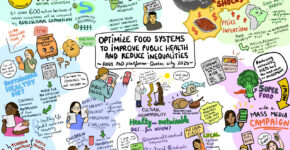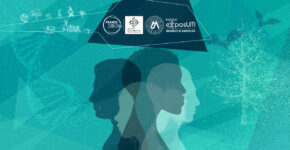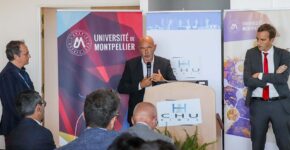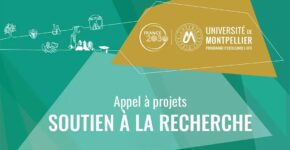The Interfaces division of the ExposUM Institute
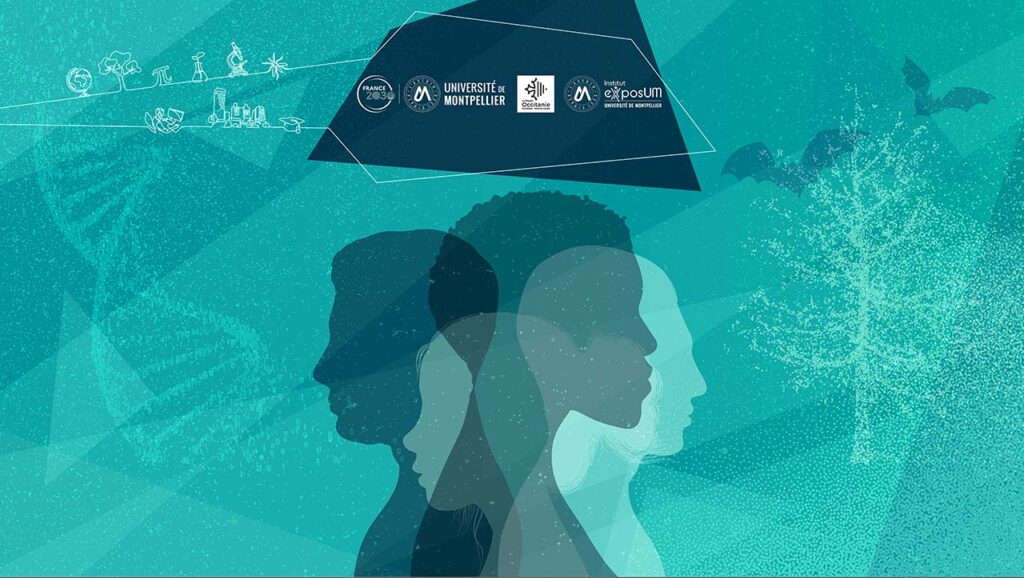
The ExposUM Institute aims to establish a leading institute for research, training, and science-society interaction in the field of the exposome, i.e., the socio-environmental determinants of human health.
What is the exposome?
The exposome refers to an individual's lifetime exposure to environmental and social factors that influence their health and the onset, progression, and severity of infectious and noncommunicable diseases. In this sense, the exposome is the environmental counterpart to the genome.
Thus, research on the exposome may focus on environmental pollution, water, air, or soil quality, vector-borne diseases, access to healthcare, ways of inhabiting a territory, health inequalities, public health policies, etc.
To learn more about the concept of the exposome, you can listen to this podcast from France Culture's scientific method: Podcast on the exposome
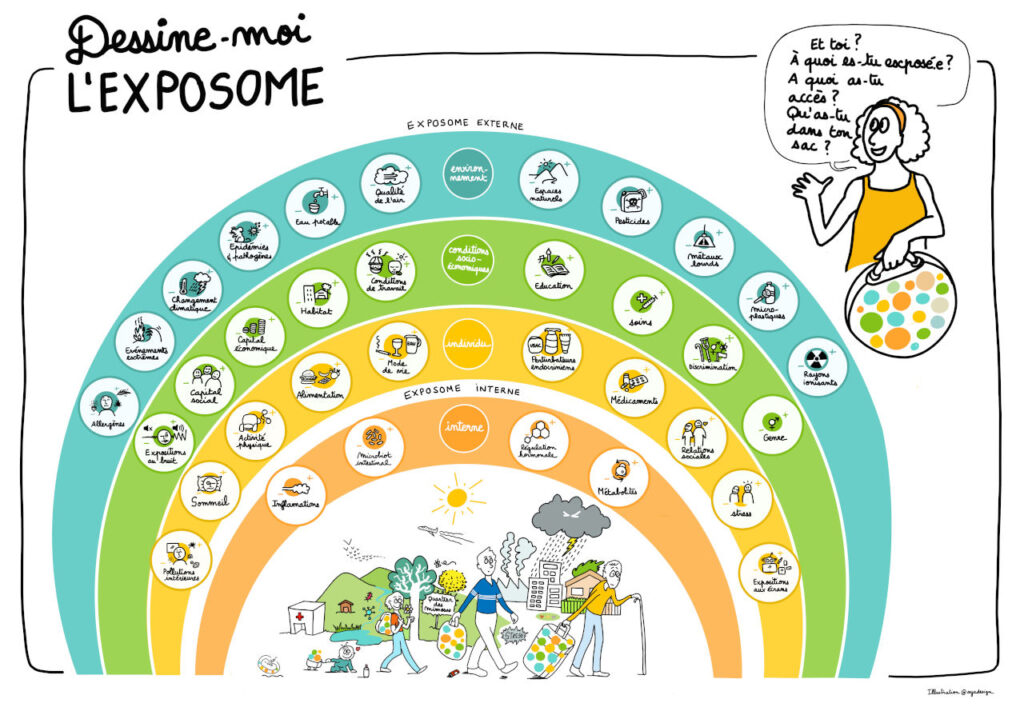
Presentation of the Interfaces Research Area and the team
The Interfaces division of the ExposUM Institute aims to create momentum for promoting research results at the interface between science and society.
Thus, at the academic level, the Interfaces axis aims to strengthen broad interdisciplinarity around the exposome by promoting spaces for dialogue between the social sciences (sociology, anthropology, geography, etc.), medical and environmental sciences, engineering sciences, etc.
In addition, the Interfaces axis aims to strengthen collaboration between researchers from the academic world in Occitanie, civil society (associations, NGOs, producer groups, patient associations, SCOOP) and public actors (ARS, elected officials from the metropolis, actors from the Occitanie region, local authorities) around transdisciplinary actions, identifying and supporting convergences with other health/environment dynamics involving academic, public, and associative actors.
The Interfaces team bases its actions on territorial approaches, supporting new collaborations between public and academic actors, while involving civil society, for example by creating new spaces for interaction between science and decision-making and translating social demands for research.
The Interfaces team is based at the Maison des Sciences de l’Homme SUD (MSH SUD, Support and Research Unit 2035 CNRS-UM-UPVM) and draws on its resources: general services and management, image center, expanded interdisciplinary incubator (ICI-ELA), science-society platform, etc.
The activities carried out in the Interfaces area are conducted in close collaboration with the key players in the Occitanie RIVOC Key Challenge, particularly in relation to the V2MOC project, which aims to better understand vector-borne infectious risks in the context of the greening of the Montpellier and Toulouse metropolitan areas, in collaboration with the Montpellier Advanced Knowledge Institute on Transitions (MAK'IT) at the University of Montpellier and the CIRAD's ImpresS (Impact of Research in the South) team, as well as other research teams.
The Interfaces division also collaborates with the UM's University Innovation Cluster (PUI), targeting innovation stakeholders and the private sector to promote the economic value of innovations.
The team
The Interfaces axis is supervised by Aurélie Binot1, who is also a member of the ExposUM Executive Committee.
Tiphaine Lefebvre, Project Assistant for the Exposum interface pillar, was recruited by the DPS and has been based at MSH SUD since September 2023.
Mariline Poupaud, Scientific Support Officer, was recruited by the DPS and has been based at MSH SUD since January 2024.
Finally, to support the team in its tasks of assisting and coordinating the cohort of ExposUM project leaders, Alexandre Guichardaz, a consultant in consultation engineering, works with the team for 20% of his working time.

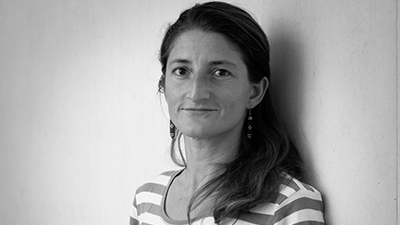

Activities carried out within the framework of the interfaces focus area
The activities of the interfaces axis can be structured into four main points:
- Support for the cohort of project leaders funded by the ExposUM Institute
- Promotion of interdisciplinary or transdisciplinary initiatives arising from projects related to the exposome
- Facilitation of an ongoing seminar to stimulate interdisciplinary thinking around the exposome
- Support for interdisciplinary and transdisciplinary regional initiatives in the Occitanie region
1. Support for the ExposUM project leader cohort
The Interfaces axis supports teams working on projects funded by ExposUM in order to promote interdisciplinary and transdisciplinary processes within projects, if deemed relevant by the project leaders, and to encourage collaboration between project teams. This support is offered to all winning teams that wish to participate. In 2023, this represents 14 potential teams (7 research projects, 5 doctoral nexuses, 2 fellowships), to which will be added the winning teams from subsequent years.
Find out more about community facilitation...
Various workshops and meetings are offered on different topics:
- Theme 1: Building community
- Theme 2: Sharing methodologies and research approaches Global Health/One Health/Health-Environment
- Theme 3: Developing skills in interdisciplinary practice
- Theme 4: Working on the science-decision-society link within projects
Various animation formats are available:
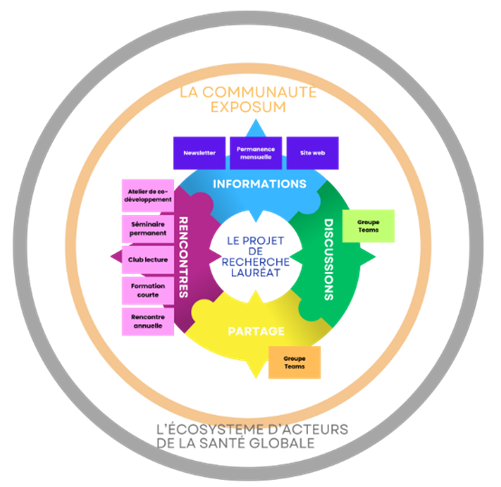
2. Support for interdisciplinary or transdisciplinary initiatives
Call for Expressions of Interest
To promote transdisciplinary projects with a regional impact and networking between researchers and civil society actors, the ExposUM institute is offering a new support mechanism for research teams from the I-Site community and their associative partners, to highlight their research on topics related to the exposome, environmental health, or global health around regional issues at the interface between science and society.
Events must include at least one communication activity (conference, event, film or documentary screening) to promote the initiative at the interface between science and society and share transdisciplinary experiences across the I-SITE.
This call for expressions of interest, entitled "Science/Society Interactions," supports action research initiatives that strengthen collaborations between I-SITE members and civil society (local authorities, associations and cooperatives, citizen groups, government agencies such as the ARS, etc.). This support is intended to assist and promote transdisciplinary research-action initiatives in the design phase (funding for exploratory actions to enable a future research-action project), in progress (funding for internships, surveys, dissemination events), or completed (promotion of the initiative).
Supported events will include at least one communication initiative to promote the transdisciplinary initiative and share experiences on the drivers and barriers to transdisciplinarity at the I-SITE level.
Call for incubation of regional projects
A call for proposals for regional projects, aimed at identifying and supporting projects addressing health and environmental issues with a significant regional impact, was open until June 2024. It is now closed.
3. Permanent seminar
The overall objective of the ongoing seminar is to encourage the emergence of new research topics at the intersection of health and the environment, by providing tools for thinking about interdisciplinarity and reflecting on the links between research and society. Through monthly sessions involving researchers from different backgrounds, the aim is to bring together a research community around the concept of the exposome and health and environmental issues, and to encourage reflection on the conduct of interdisciplinarity and transdisciplinarity.
The presentations scheduled for this seminar will contribute to the participants' reflections in three main areas:
- The concept of the environment: these sessions will examine in particular the contrast between a "pathogenetic" view of the environment as a reservoir of pathogens and a "salutogenic" view, in which the environment is understood in terms of socio-ecological functions that regulate the emergence of pathogens.
- The limits of integration: these sessions will examine the proposed methods for interdisciplinarity that integrate biological, social, and environmental factors, as well as ways of dealing with different epistemological and methodological frameworks.
- Interaction between research, policy, and social actors: these sessions will explore the potential impacts of exposome research on civil society actors and the possibilities for incorporating their requests and proposals into a process of mutual translation between non-academic and academic actors.
Upcoming sessions of the permanent seminar
If you would like to be notified of upcoming sessions of the ongoing seminar, please send an email to Mariline Poupaud or Tiphaine Lefebvre to be added to our mailing list.
Past sessions of the permanent seminar
Previous sessions have been filmed and are available online.
- The exposome: epistemological challenges of integration in health and the environment
Seminar theme: "The limits of the ambition for integration"
Speakers: Élodie Giroux and Yohan Fayet
- Embodied ecologies: residents' sensory awareness of their exposure to chemicals in urban life and their strategies for reducing it
Seminar theme: "The concept of environment" June 26 from 4:00 p.m. to 5:30 p.m.
Speaker: Anita Hardon, health anthropologist and biologist, Wageningen University, Netherlands
- Health and environmental issues in the face of ignorance and public inaction
Seminar focus: "Limits of integration ambitions" and "Interaction between research, policy, and social actors"
Speaker: Emmanuel Henry, political scientist and sociologist, professor at Paris Dauphine-PSL University and researcher at the Interdisciplinary Research Institute in Social Sciences (IRISSO, CNRS, INRAE)
- Interactions between scientific knowledge and political decision-making in health and the environment: The experience of a transdisciplinary working group in Brazil – November 22 , 2023, in collaboration with Mak'it.
Seminar theme: "Interaction between research, policy, and social actors"
The speaker, Jean Paul Metzger, Mak'it guest ecologist, presented the center BiotaSynthesis center he directs. This center brings together academics and government officials to address transdisciplinary health and environmental issues in Sao Paulo, Brazil. He emphasized the importance of synthetic approaches to health and the environment in promoting dialoguebetween science and policy and enabling the co-construction of public prevention policies.
- Reconnecting scientific and citizen knowledge about environmental health: The role of eco-citizen institutes in pollution awareness – December 14 , 2023
Seminar theme: "Interaction between research, policy, and social actors "
This session examines the role of Citizen Institutes for Pollution Awareness, a third place for research based on three pillars: the production of localized knowledge, the joint treatment of environmental and health issues, and participation. This session offered reflections on ways to better articulate scientific and citizen knowledge with regulatory practices for more effective and precautionary public action on environmental health.
Speakers: Philippe Chamaret, chemist and director of the Institut écocitoyen de Fos; Viviane Thivent, elected representative of Narbonne and promoter of the Institut écocitoyen de l'Aude; Yann Philippe Tastevin, anthropologist at the CNRS, leader of the Observatoire transdisciplinaire des changements environnementaux de Sébikotane Diamniadio (Senegal); Sofia Bento, sociologist at the University of Lisbon, head of participatory research for the Observatoire Hommes Milieux d'Estarreja (Portugal), and Christelle Gramaglia, sociologist at the UMR-G-EAU of INRAE in Montpellier, author of a book on citizen experiences and metrology of contamination.
- Interdisciplinarity between the humanities and social sciences and the life and environmental sciences: obstacles and drivers within a scientific community interested in infectious risks and vectors – December 19 , 2023, in collaboration with Kim Rive and RIVOC – Seminar theme: "The limits of the ambition for integration"
During this session, the speaker shared his analyses from a sociological survey on the obstacles and drivers of interdisciplinarity between the humanities and social sciences and the life and environmental sciences. In an attempt to explain the lack of effective interdisciplinary collaboration in projects, despite the interest of both life and environmental sciences and humanities and social sciences stakeholders, the speaker returned to sociological definitions of "professions" and applied them to the scientific profession. This presentation does not provide a ready-made answer for conducting interdisciplinary research, but sheds light on obstacles that should be discussed in any collaborative project.
Speaker: Jérémy Rollin, researcher in sociology and politics at the Faculty of Medicine of the University of Montpellier.
- The Port Environmental Monitoring Platform in Cotonou, Benin: a multi-stakeholder initiative for managing biological invasions linked to international maritime traffic. A concrete example of operationalizing research at the science/society interface – February 8 , 2024
Seminar theme: "Interaction between research, policy, and social actors "
During this session, speakers shared their experiences of setting up the Port Environmental Monitoring Platform in the Autonomous Port of Cotonou in Benin, which was officially inaugurated at the end of 2021. This platform is the first laboratory dedicated to monitoring and supporting the management of invasive species, particularly rodents that carry vectors and pathogens, to be established in an African port. Its implementation is the result of numerous interactions between academic and non-academic partners and is a prime example of how scientific research can be put to work to address societal challenges.
Speakers: Gauthier DOBIGNY and Tasnime ADAMJY, UMR CBGP (IRD), researchers in ecology and evolution.
- Eternal pollutants: between research and the implementation of public prevention policies
Seminar theme: "Interaction between research, policy, and social actors"
March 26 from 3:00 p.m. to 4:30 p.m., in collaboration with Mak'it
Speaker: Patrick Allard, Mak'it guest, Professor at the Institute for Society and Genetics at the University of California, Los Angeles (UCLA), researcher in genetics, epigenetics, developmental biology, and environmental health.
4. Territorial actions and networking
Public policies and actors
The Interfaces team participates in the "health ecology" working group, initiated by the Montpellier Metropolitan Area and the City of Montpellier. This working group also brings together numerous research institutes, a hospital center, and public operators. The Interfaces team is particularly involved in working group No. 3 on monitoring and evaluating the impacts (using the impact pathway methodology) of new forms of governance and collaboration between scientists and the public sector on health and environmental issues.
The Interfaces division works closely with the managers of Occitanie's Regional Health and Environment Plan 4 (led by the Occitanie Regional Health Agency (ARS) and the Regional Directorate for Environment, Planning, and Housing (DREAL)) to ensure synergy between our actions.
On an ad hoc basis, the Interfaces team supports international teams working at the science-decision interface on health and environment issues. For example, with the support of CIRAD's ImpresS team, researchers and a civil servant from Brazil involved in the Biotasynthesis center were able to develop an ex ante impact pathway for their project (see the report online).
In the spring, in collaboration with the Center for Land Policy, we are organizing the fifth edition of the experimental educational program Campus Anthropocene/Spring School"Healthy Territories,"which will take place in Montpellier from March 31 to April 4.
Researchers and representatives of civil society (elected officials, technical agents, students, associations, artists) will work together in the Montpellier area to examine the ins and outs of territorial habitability in the face of challenges related to territorial expansion and environmental preservation in the context of climate change and pressure on territorial resources (water, air, soil). As part of this school, we propose to focus on the question: how can we live healthily in the Anthropocene in the Montpellier area? More specifically, we will focus on issues related to water and rivers (water resources, water quality), nature-based solutions to climate change and associated vector risks (vegetation to combat urban heat islands, tiger mosquitoes and infectious diseases, etc.), and the relationships between humans and non-humans (wild animals and invasive alien species and associated health risks) within a One Health framework.
In the spring, in collaboration with the Center for Land Policy, we are organizing the fifth edition of the experimental educational program Campus Anthropocene/Spring School "Healthy Territories," which will take place in Montpellier from March 31 to April 4.
Researchers and representatives of civil society (elected officials, technical agents, students, associations, artists) will work together in the Montpellier area to examine the ins and outs of territorial habitability in the face of challenges related to territorial expansion and environmental preservation in the context of climate change and pressure on territorial resources (water, air, soil). As part of this school, we propose to focus on the question: how can we live healthily in the Anthropocene in the Montpellier area? More specifically, we will focus on issues related to water and rivers (water resources, water quality), nature-based solutions to climate change and associated vector risks (vegetation to combat urban heat islands, tiger mosquitoes and infectious diseases, etc.), and the relationships between humans and non-humans (wild animals and invasive alien species and associated health risks) within a One Health framework.
Support for two regional initiatives for the year 2024
Mobitiques action research project on the prevention of tick-borne diseases
ExposUM supports the Mobitique project. The Interfaces team prepared, hosted, and facilitated five three-hour workshops bringing together researchers in tick ecology (Vectopôle Sud), researchers in the humanities and social sciences (education sciences, social psychology), representatives from the ARS (vector control), associations (CTIQUE, Graine Occitanie), and a representative of livestock farmers (director of the Occitanie Health Protection Group). This pilot project is being developed in line with the ambitions of Occitanie's Regional Health and Environment Plan 4.
This incubation led to an action plan for 2025, supported by the environmental education association Le Graine. This project proposes to develop and implement educational initiatives aimed at strengthening citizens' involvement in issues related to the risk of ticks in their local area, as well as testing one or more scientific research questions in the field of sociology. The aim is to encourage greater citizen engagement, while scientifically measuring and evaluating the impact of public awareness on behavioral changes through a dedicated research protocol.
The initiative around citizen institutes for pollution awareness: support for the Aude institute
The Eco-Citizen Institute for Pollution Monitoring in Aude received support from ExposUM in 2024. This institute was inspired by the Eco-Citizen Institute for Pollution Awareness in Fos-sur-Mer, which since the 2010s has brought together academics and local residents who work together to develop research addressing questions about the long-term consequences of rapid industrialization that began in the late 1960s and has been regularly revived. These institutes promote the hybridization of knowledge, particularly in the field of environmental health, and constitute territorial experiments likely to encourage the implementation of preventive measures in environmental health, as part of a transformation of territorial dynamics.
Social science training courses were offered to volunteers in the Aude department. The courses are available online.
A festival was organized in November 2024 to give the residents of Aude a fun introduction to the crucial issues surrounding environmental health in the region. The festival brought together experts, activists, scientists, and artists to offer a rich and informative experience.
Support for two regional initiatives for the year 2025
Two projects have received support from ExposUM for the year 2025.
The Rivière project, "Infectious Risks in Cities: Health Ecology Applied to Interactions between Nutria and Humans," studies human-nutria interactions in the Lez River basin and focuses on the health risks associated with leptospirosis, a zoonotic disease transmitted by these rodents. The project develops an interdisciplinary and transdisciplinary approach to assess these risks.
The Vaxinter project examines how to combine disciplines to address issues raised by vaccination at the interface between science and society. This project involves two researchers in the humanities and social sciences in order to initiate a dialogue between biomedical sciences and the humanities and social sciences. A study will be conducted in experimental economics to explore the impact of media coverage and vaccination among healthcare workers. Work will be carried out in communication sciences to strengthen the links between science and citizens.
Consumer shares
The Interfaces team participates in and organizes events for the general public. In 2024, the ExposUM institute will be presented at the science festival on October 12 at the Lunaret Zoo Day.
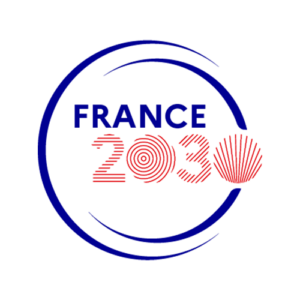

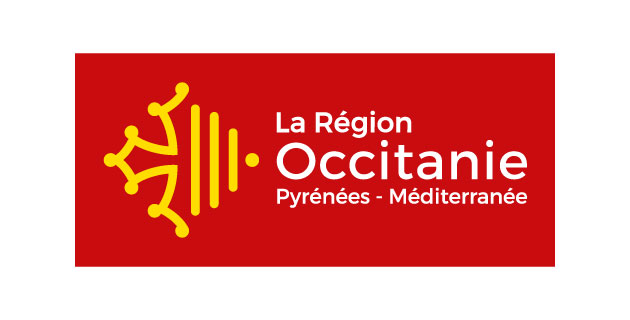
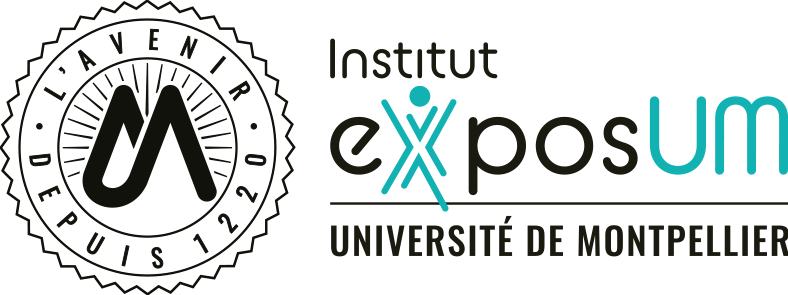
- Aurélie Binot, welcomed at MSH SUD as deputy director, is responsible for coordinating Axis 2, "Science-Society Interfaces," at the ExposUM Institute and is a member of the ExposUM Executive Committee. She has been appointed to these positions in her capacity as a CIRAD researcher recognized in this field. Within the framework of this Axis 2, the UM can draw on the action research mechanisms of MSH SUD and its staff, enabling this UAR to carry out actions on behalf of the ExposUM Institute. ↩︎
